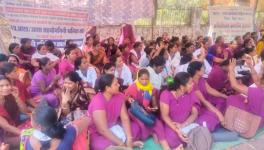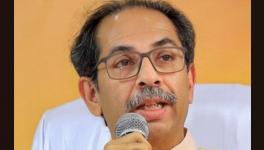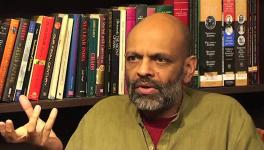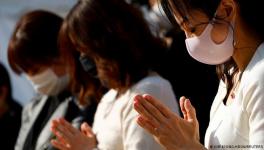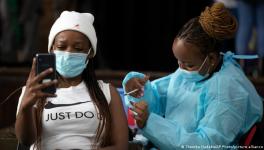Covid-19: Bengaluru Struggling to Cope with Rising Cases
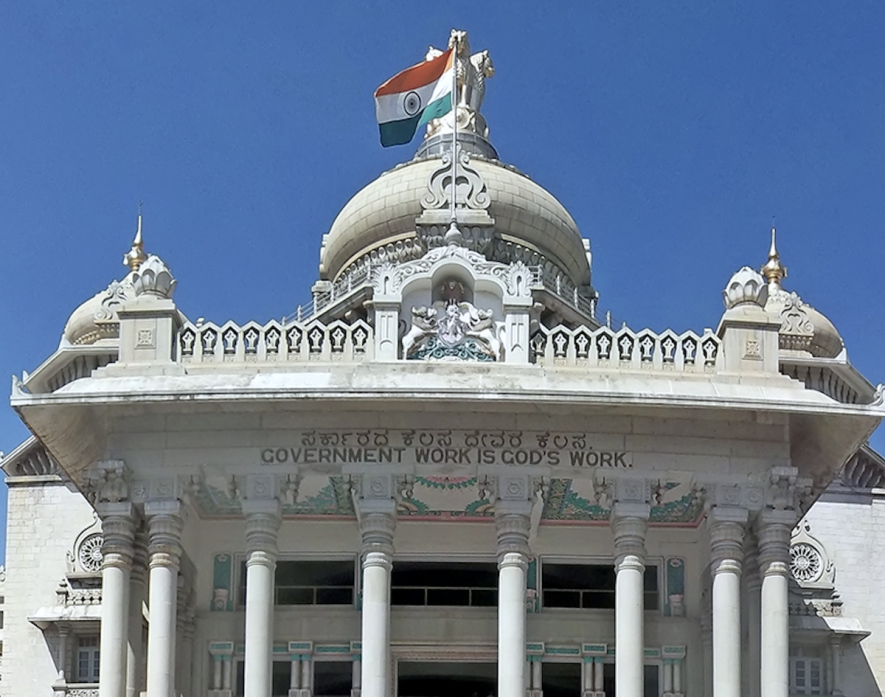
Though there is no sign of a respite from the rising number of cases in Bengaluru, the Yediyurappa government is busy shuffling bureaucrats and looking for scapegoats.
In response to the increasing caseload in the city, the state government decided that Bengaluru Urban and Bengaluru Rural should have a week-long lockdown, from 8 pm on July 14 till 5 am on July 22, ostensibly, to use medical education minister K. Sudhakar’s words, “to cut down one cycle of transmission of the virus.” Expert have expressed scepticism of the efficacy of just one week of lockdown. Mayor Goutham Kumar has asked for a lockdown of 14 days. The former BBMP Commissioner, BH Anil Kumar, also added, “To break the virus chain, it is essential to have 14-days of lockdown. This will help in preventing the spread. We have requested the government for extension of lockdown and the Chief Minister will take a call on it.” The controversial commissioner was quickly transferred, probably an indicator that the government does not want to extend the lockdown. N Manjunatha Prasad, the new commissioner, has promptly squashed all speculation on the extension of the lockdown.
Karnataka was being lauded for its control over the cases until unlockdown 1.0 began. The real crisis in Benguluru Urban district has been the breakdown in the testing, tracing, tracking, and treatment of patients. The Hindu reported that “From June 1 to 22, the source of transmission (for Bengaluru Urban district, which includes BBMP) was not determined in approximately 62.76% cases. In this period, the health bulletin puts the total of cases reported at 1,050, of which source of transmission was not ascertained in 659 cases.”
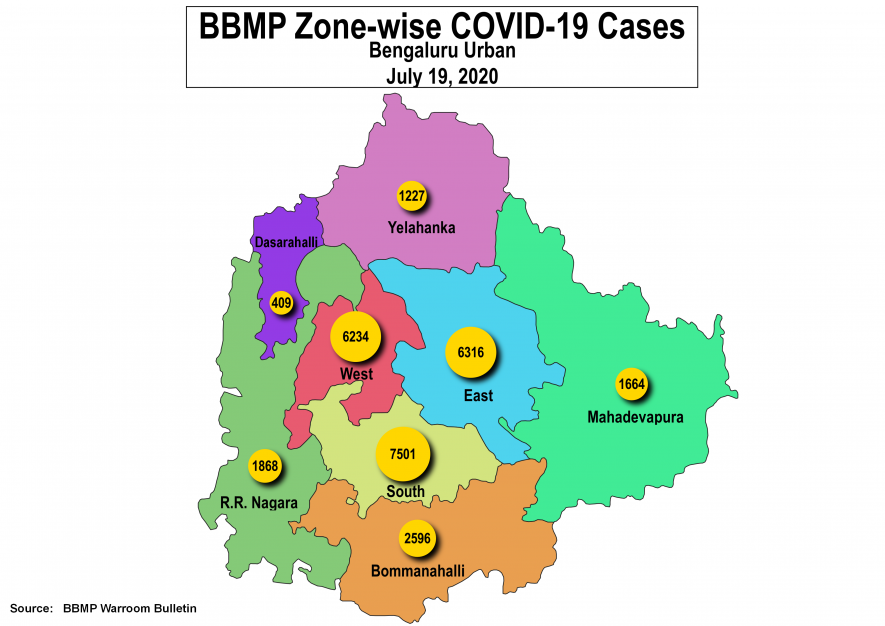
South Bengaluru emerged as the area with the highest number of confirmed cases in the city, and localities in the centre of the city such as Sampangiram Nagar, Shantinagar (East Zone) and Gandhi Nagar, all localities that are considered to be in the “City” side of Bengaluru, have been badly affected.
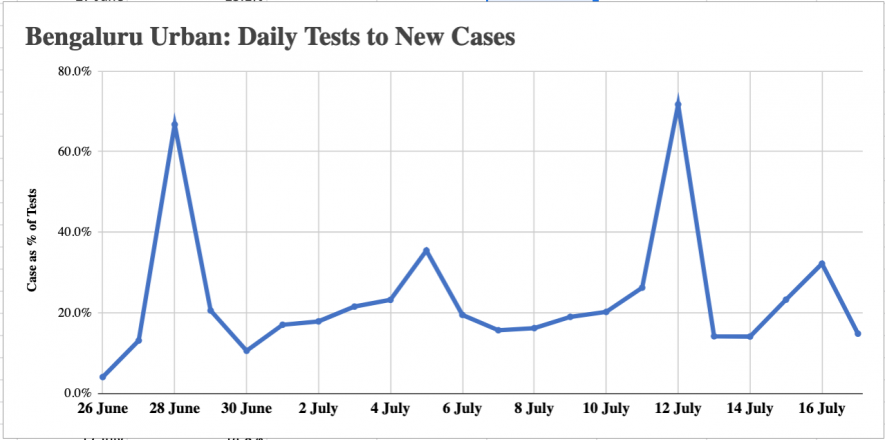
The percentage of the number tests to the number of new cases has been growing since June 26.
On the other hand suburban wards that are part of the IT corridor don’t seem to be as badly affected as the old part of the city, though apartment complexes and migrants abound in these parts of the city.
Dasarahalli zone, which has the sprawling Peenya Industrial Area, seems to have been relatively unscathed so far.
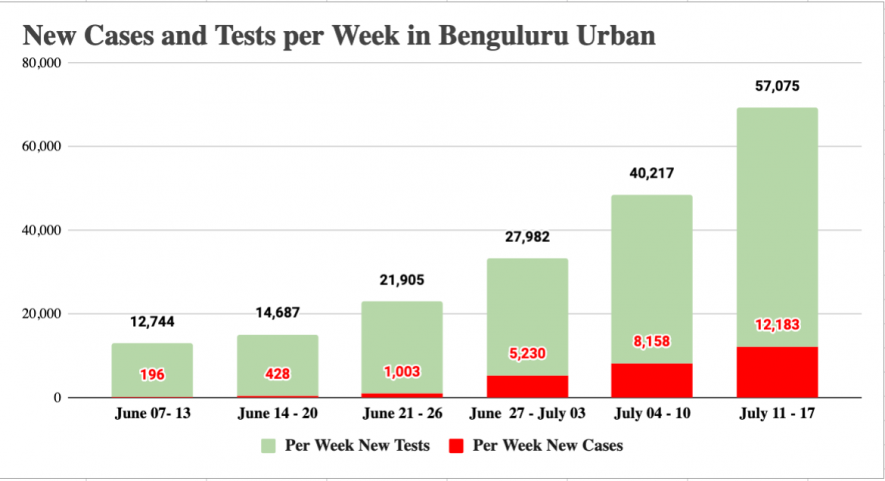
A look at the weekly tests to total cases per week in Bengaluru.
The government has been been struggling to shore up the health infrastructure in the city with the promise of a real-time display of the availability of the number of beds available in both government and private hospitals. On July 19, Prasad was still threatening private hospitals for non-compliance. He said: “The government has calculated the capacity of each hospital and arrived at the figures. I’ll be issuing show-cause notices to all private hospitals tomorrow (Monday).” Chief Minister Yediyurappa too has asked private medical colleges in Bengaluru to provide 50 per cent of their beds to the government.
The inadequate number of tests and poor health infrastructure is making Bengaluru’s battle against the pandemic an acute one.
Get the latest reports & analysis with people's perspective on Protests, movements & deep analytical videos, discussions of the current affairs in your Telegram app. Subscribe to NewsClick's Telegram channel & get Real-Time updates on stories, as they get published on our website.










